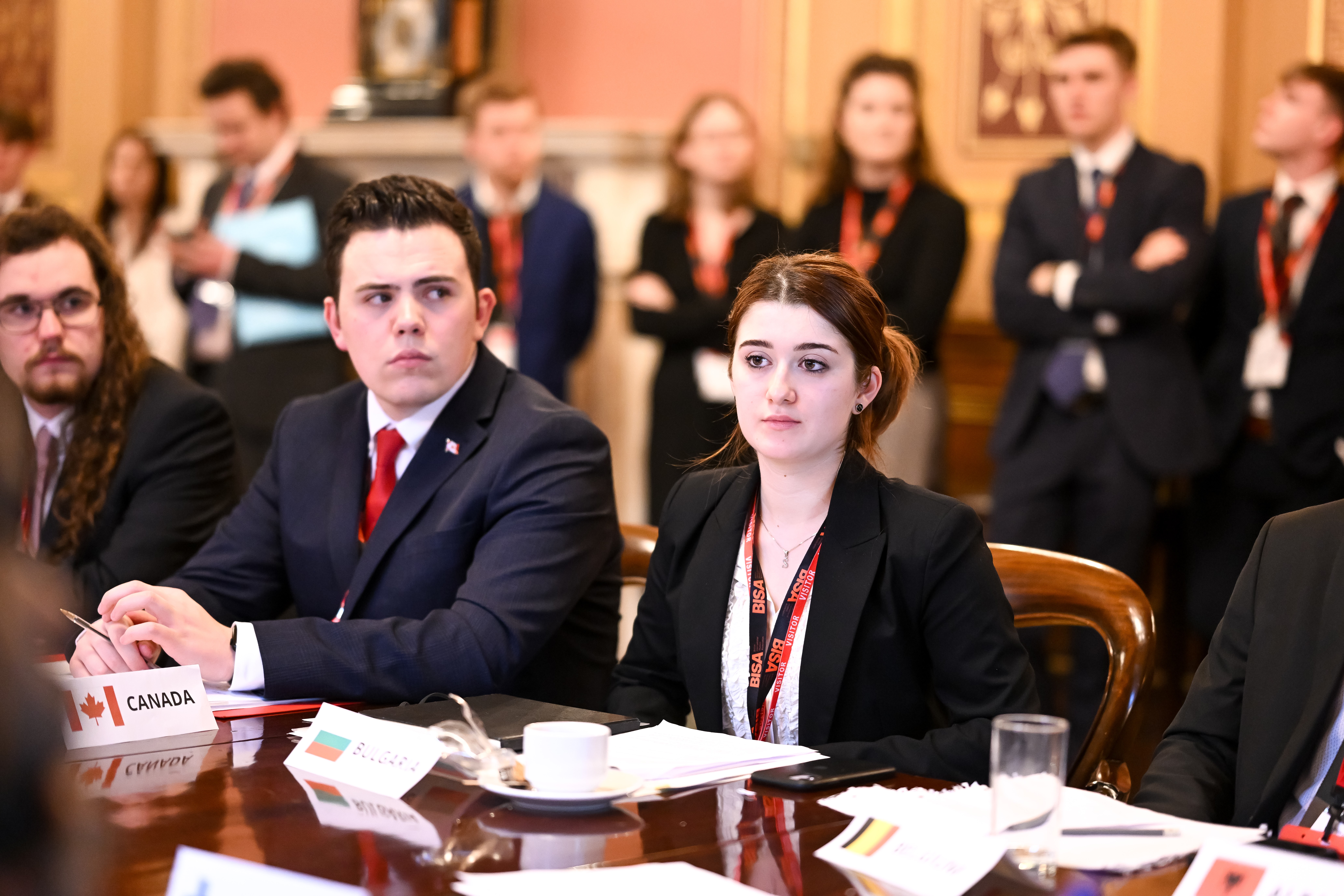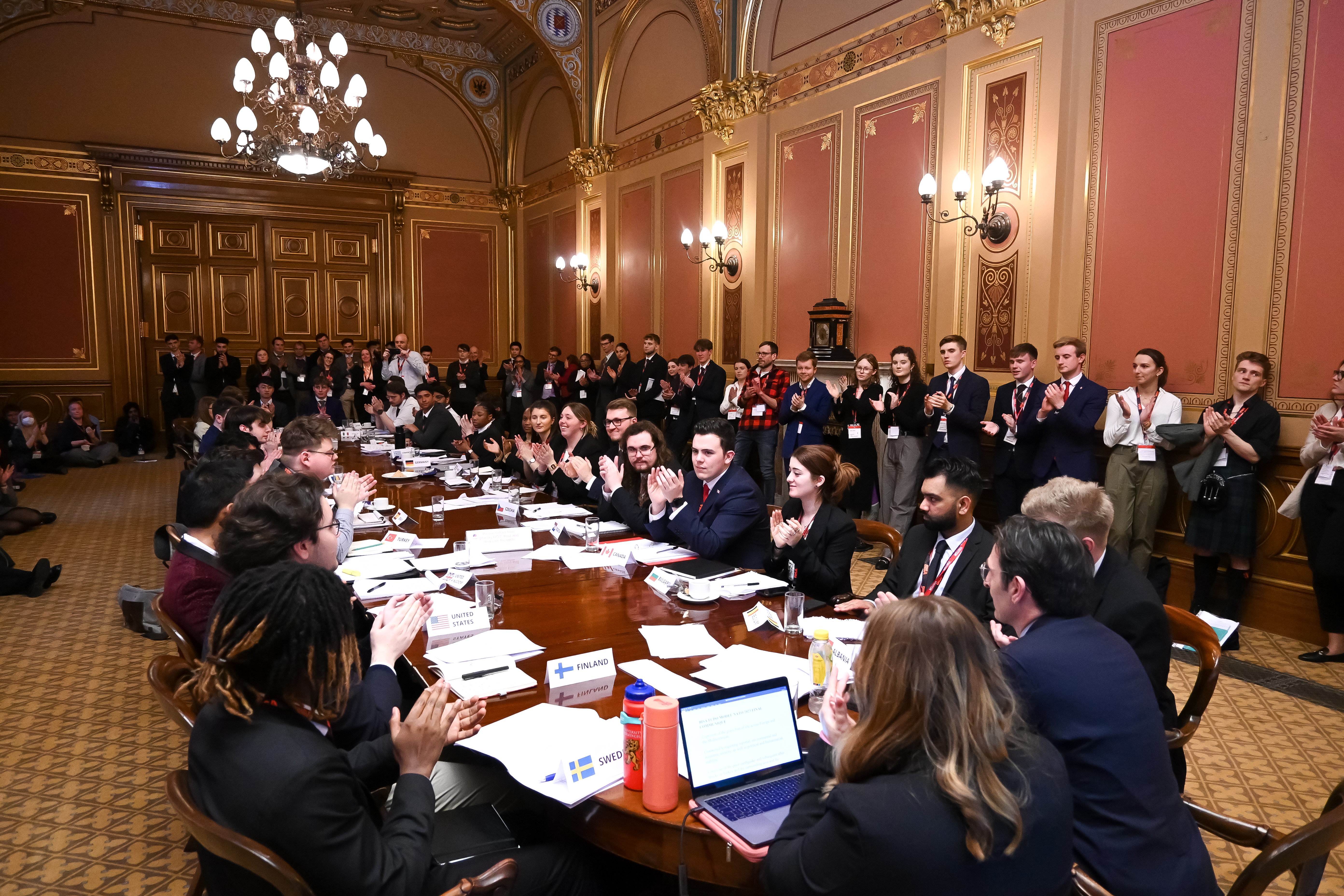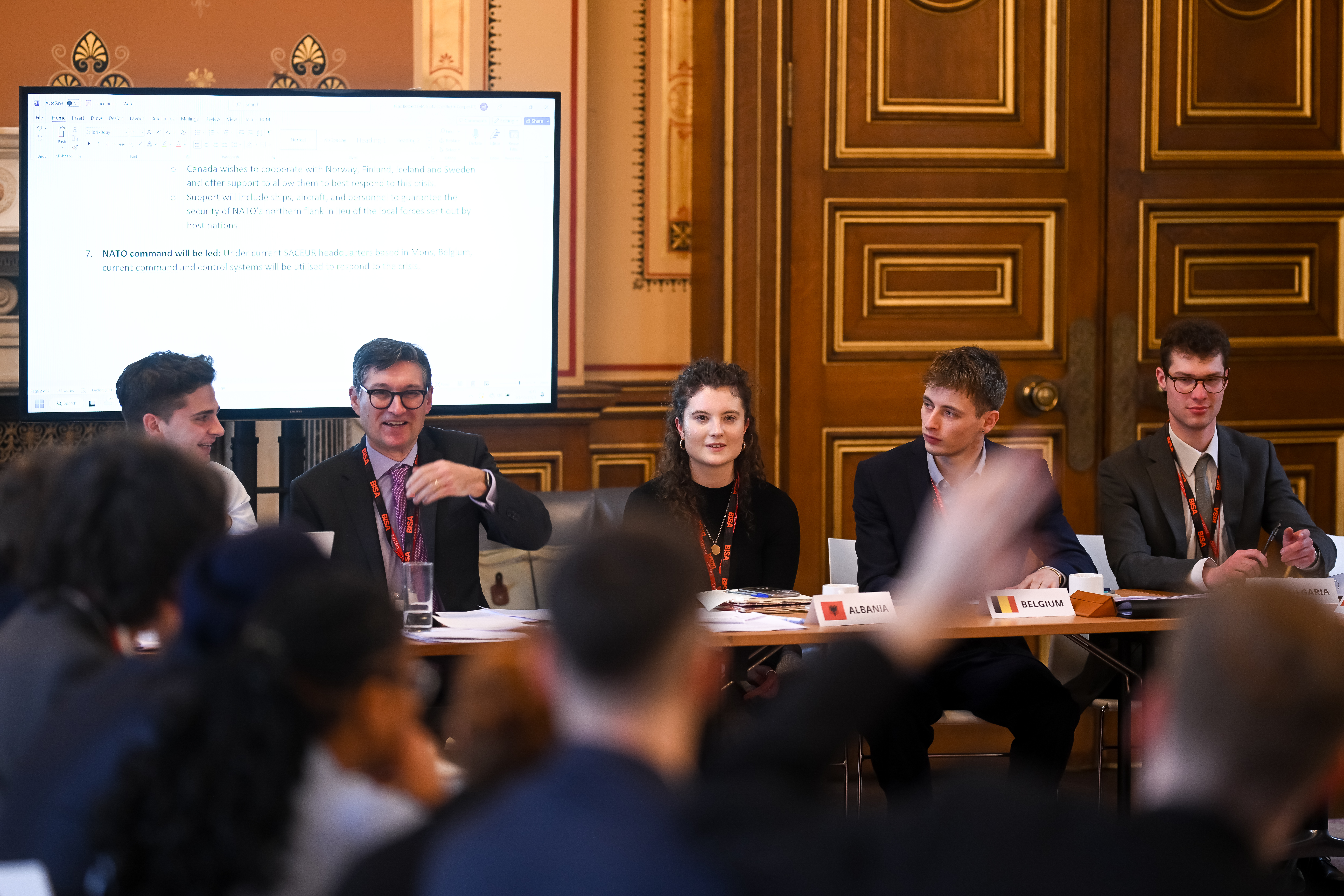On 3rd March 2023 Benjamin Channon; Sara Sulaj, Nadia Brito represented the University at this year’s BISA Model NATO. Over 100 students and 30 Universities participated in the simulation. Sara Sulaj writes about the experience for us here.
‘The Model NATO conference, held by the UK Government Foreign Office and the British International Studies Association, taking place at their offices in London, was structured to replicate the real-world processes of NATO. The event brought together students from diverse British universities, enabling the exchange of ideas and fostering a deeper understanding of NATO’s role in promoting collective defence, crisis management, and partnership building.
We had each been given a NATO nation to represent, researching into their country’s resources and political positions prior to the Model. We had also been given two briefings on the disaster at hand.
‘This year’s hypothetical scenario focused on multiple earthquakes and a volcanic eruption, resulting in significant loss of life and mass displacement of populations.
As a delegate representing Bulgaria, I participated in in the committee of North Atlantic Council sessions, which required extensive research, analysis, and collaboration with fellow delegates to develop comprehensive policy recommendations and crisis management.The conference included a crisis simulation exercise, which aimed to test participants’ crisis management skills and their ability to respond effectively to unexpected security challenges. This exercise demanded quick thinking, adaptability, and effective decision-making within a dynamic and time-sensitive environment. As part of a crisis response team, I collaborated with fellow delegates to develop immediate response strategies and mitigate the simulated crisis’s impact.
During the committee sessions, I actively engaged in constructive debates and discussions, contributing to the development of resolutions and policies aimed at addressing pressing international security challenges. Through diplomatic negotiations and consensus-building efforts, we crafted joint resolutions that represented our collective positions and interests.
Overall, one of the significant advantages of participating in the Model NATO conference was the opportunity to network and collaborate with fellow delegates. Engaging in formal discussions allowed for the exchange of diverse perspectives, enhancing my understanding of international relations, diplomacy, and negotiation. These interactions provided valuable insights into the challenges faced by other member states and deepened my appreciation for the importance of collaboration in resolving complex security issues.
Not only, was participating in the Model NATO conference an enriching experience that provided a realistic platform to engage in diplomatic negotiations, policy development, and crisis management exercises the conference enhanced my knowledge of NATO’s functions, decision-making processes, and the intricate dynamics of international security. By actively contributing to committee sessions, engaging in crisis simulations, and networking with fellow delegates, I gained valuable skills in diplomacy, collaboration, and strategic thinking. This experience has further ignited my passion for international relations and highlighted the significance of multilateral cooperation in addressing global security challenges.’
Find out more about BISA’s Model NATO here.



